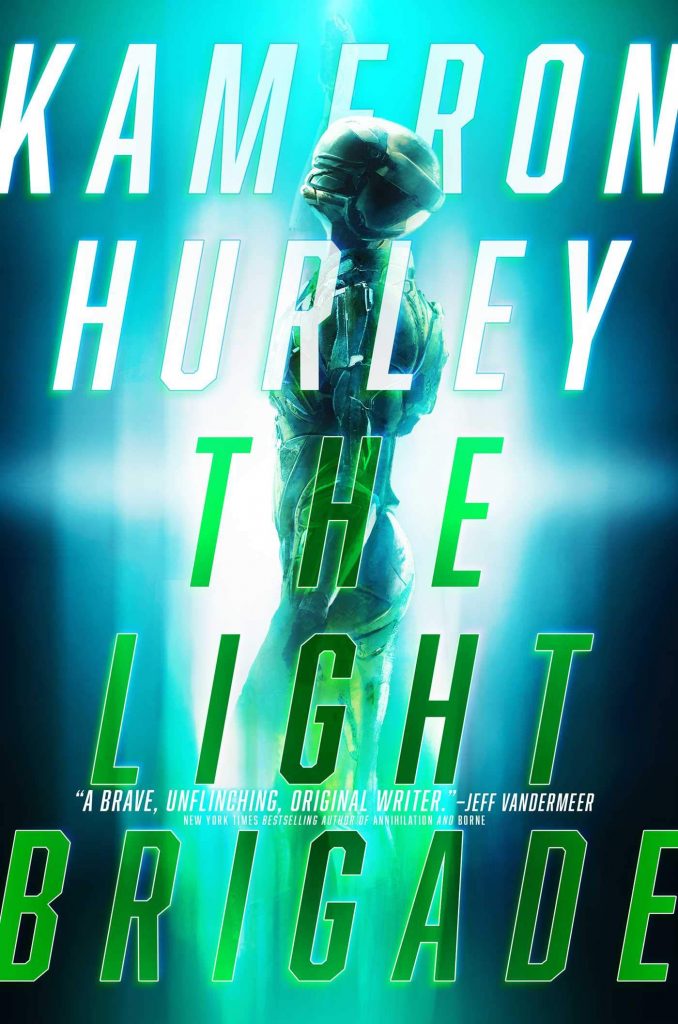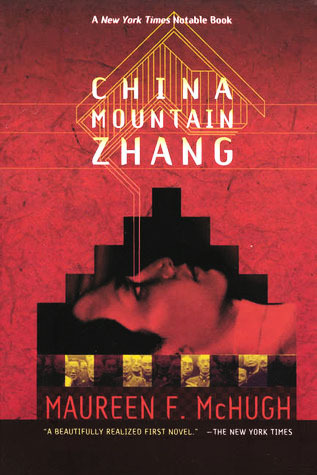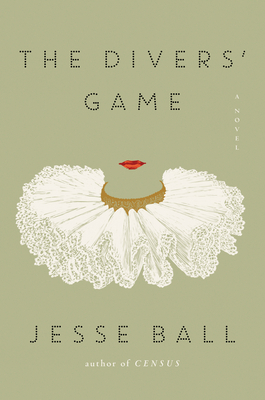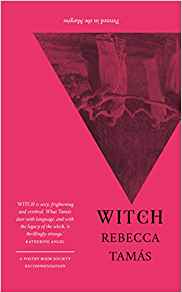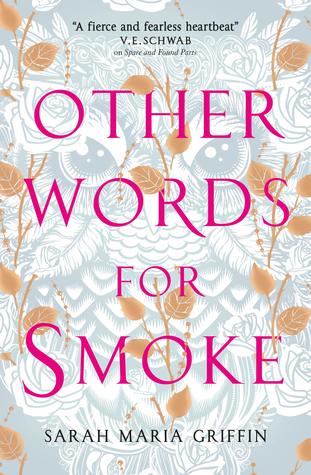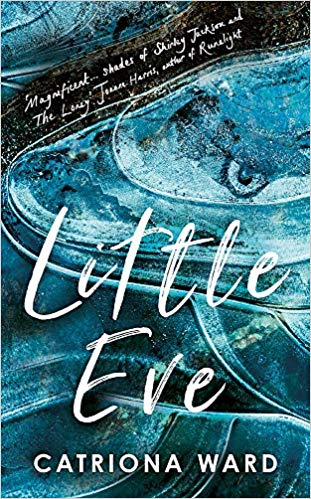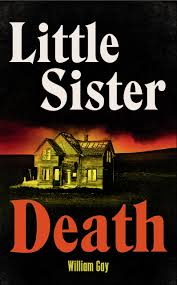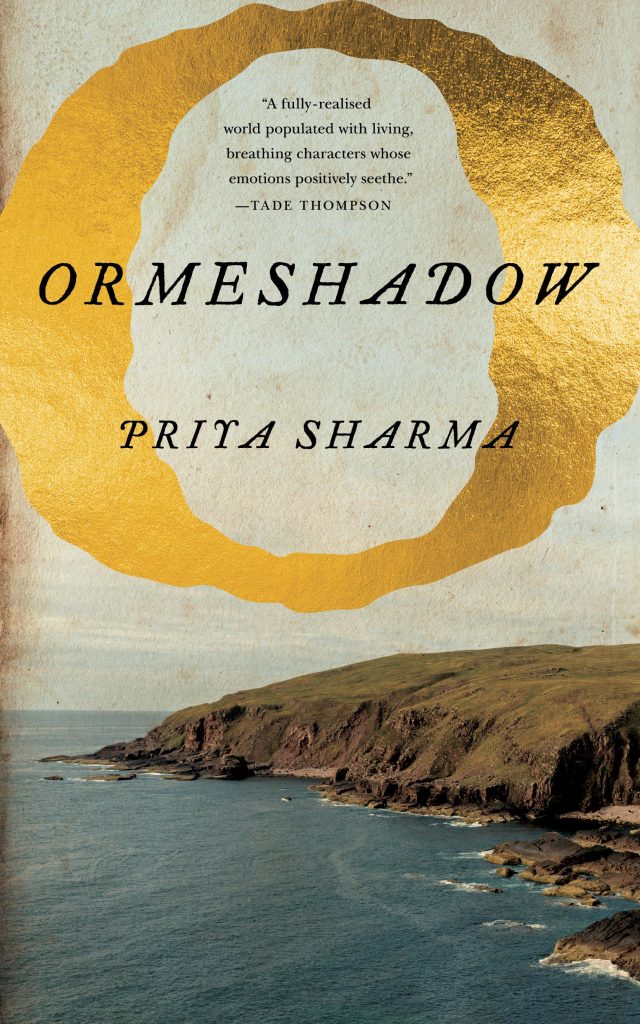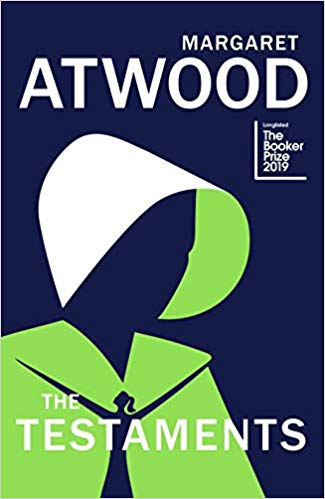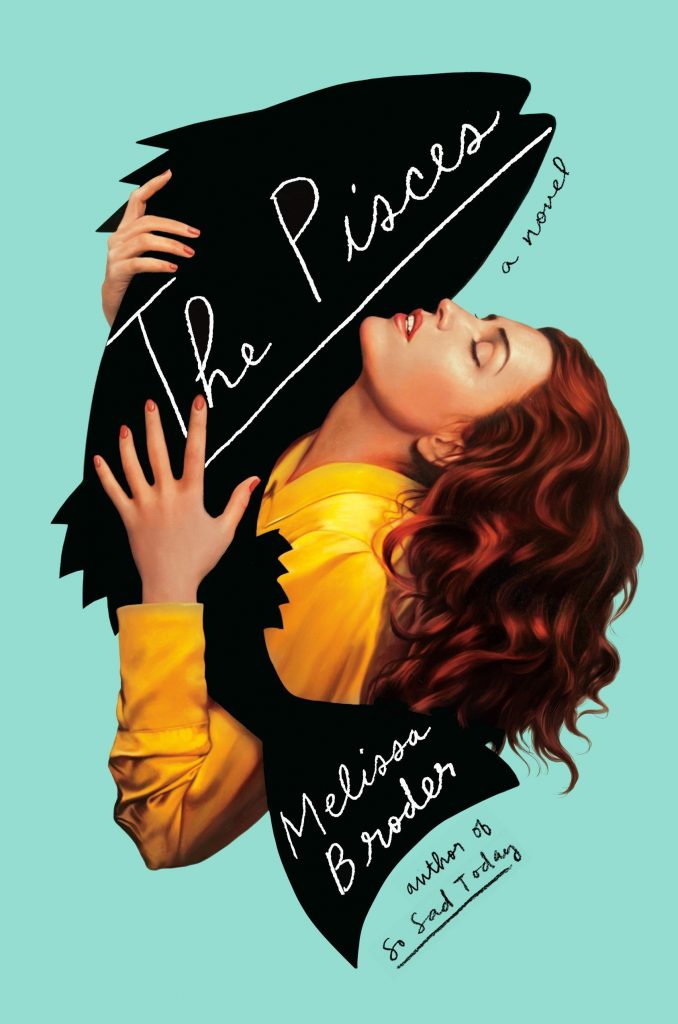Somewhere along the line, people lose their courage over science fiction. They stop reading it, they stop thinking of it as literary.
(Una McCormack, Backlisted.)
The above quote is taken from a discussion on the Backlisted podcast of William Golding’s second novel The Inheritors. Backlisted is one of the best literary podcasts around, and for those who haven’t discovered it yet I recommend it heartily. This particular discussion though seemed especially resonant to me among the plethora of arguments and counter-claims that have sprung up recently around the question of the science fiction canon: does such a canon even exist, and if so, should it? If the idea of a canon of science fiction literature is important, what should be included?
This is a discussion that seems to resurface with predictable frequency, most recently in the aftermath of George R. R. Martin’s ill-conceived hosting of the Hugo Awards ceremony at virtual ConZealand. Whatever your feelings about Martin, or indeed the SFF canon, it would be difficult to deny at the very least that the parade of anecdotes trotted out on that evening, both by Martin himself and by guest-contributor Robert Silverberg, went on way too long. Given that many of the shortlisted authors had stayed up literally all night to be virtually present at the ceremony, the waiting times between award announcements – which seemed to get longer and more discursive as the ‘evening’ progressed – must have been agony. That Martin seemed disinclined to include any celebration of those authors, their works, or the tradition of speculative fiction in New Zealand were more bitter pills the audience were forced to swallow. It was almost as if Martin had forgotten the substantial time-differences that had to be juggled with, not to mention what the evening was supposed to be about. If so, then someone should have reminded him. Three-and-a-half hours of random talk is not a recipe for audience enjoyment, even for those members of the audience who have an interest in what is being said.
But what of the most substantive criticism levelled at Martin, that of harping on authors and ideas who have not only dominated the discourse for too long, but who are now largely irrelevant at best, harmful at worst to the writers and fans who have made the genre their home in more recent years? The boggy ground around this question might best be navigated through the prism of a single question: do you have to read Campbell, Asimov and Heinlein to truly know science fiction? While the shortest and most pertinent answer to that question is simply ‘no’, I do still find it interesting to consider whether the idea of ‘canon’ has any more value other than – as its most vehement detractors insist it is – as a gatekeeping device.
I happened to listen to the Backlisted discussion of The Inheritors pretty much exactly around the time the Hugo thing kicked off, and it had two distinct effects on me. The first was to reignite my interest in the writing of William Golding (more on that shortly), the second was to reaffirm me in my belief that whilst there is no such thing as the science fiction canon – canons are artificial constructs, set in place by whoever happens to have grabbed the establishment microphone at any given time – there is such a thing as a personal science fiction canon, and that it is through these individual responses to and movements towards that we learn most about ourselves as readers, writers, fans and critics of the literature we love.
Needless to say, it was something Una McCormack said on the podcast that began that train of thought:
I think science fiction as a genre changes significantly in the sixties as it starts to diverge from literary fiction. But there just seems to be a straight line, for me, from Wells, who supplies the epigraph for [The Inheritors], through Golding, to people like JG Ballard and Nigel Kneale. And then if you opened a book by Christopher Priest or Chris Beckett, you’ve got an absolute straight line there, I think, of literary British science fiction.
Her words literally raised the hairs on the back of my neck, because it is this straight line, this lineage, I have been banging on about in public and in private ever since I first began thinking critically about science fiction, yet I had never heard anyone express the same idea in terms that so exactly mirrored my own perceptions. I have never felt either affinity for or allegiance to the quintessentially American Analog route into SF: Campbell and the pulps, Asimov, Heinlein. The path I forged – though I did not think of it then as forging a path, I was simply reading books I loved and seeking out more like them – led precisely via Wells, Huxley, Orwell and Wyndham through Golding, Lessing, Kavan, Iris Murdoch, John Fowles and John Christopher to JG Ballard, (Keith) Roberts, (Mike) Harrison and Christopher Priest.
I have heard some fans repeatedly insisting that science fiction is an American form. I think this is nonsense. Whilst you can argue that the term ‘science fiction’ originated with Hugo Gernsback and came to define ‘the’ SF canon for many decades after, to maintain that this form of SF should continue to define SF is both illogical and limiting. ‘Science fiction’ is in a sense as illusory and artificial a construct as ‘the canon’ – it has no origin in empirical fact, it is simply what people say it is. Why should we grant primacy to one version of the construct over another?
When talking about science fiction, it is both useful and necessary to offer a more specific personal background to what, exactly, we are talking about.
I am ferociously proud of my science fiction lineage. Whilst I would never claim it as ‘the one true way’ – that would be ridiculous – its landscapes and aesthetic have immense resonance for me, and these writers form much of the basis for how I originally came to perceive and understand speculative fiction. I am still deeply attached to them today, and to a version of science fiction that cants towards literary modernism rather than the traditional ‘novel of ideas’ that arose from the pulp tradition. (Another gem gleaned from the Backlisted podcast: the TLS originally reviewed The Inheritors alongside John Wyndham’s The Chrysalids.) I have no doubt this is the area I will continue to gravitate towards, both as a writer and as a critic. But that certainly does not mean that I denigrate other traditions as being inferior, or that I am not interested in them. I think much of the tragedy of Martin’s Hugo ramble is that he seems entirely incurious about what writers are writing now, and why science fiction matters personally, to them, for reasons that have nothing to do with Campbell and Asimov and Ellison, indeed rather the opposite.
New and diverse traditions of science fiction are not a threat to older or more established traditions – they are simply that: new and diverse, with all the excitement and expanded possibility such words encompass. For each of us to find our own way through the maze – to identify and draw inspiration from particular writers or groups or generations of writers we perceive as pursing interests or traditions or modes of expression in sympathy with our own – is that not exciting, enriching, instructive and something to be celebrated?
I have explored and will continue to explore some of the ‘canonical’ works from science fiction’s so-called Golden Age – not because I feel I should but because I am interested. I enjoy thinking about these things, I enjoy writing criticism, and I happen to believe that the more widely you read around a subject, the more fiercely you can argue your corner, the more enjoyment you can derive. And having said that, I saw an interesting comment somewhere at some point during the post-Hugo furore with words to the effect that it is actually the middle generation of science fiction writers – Le Guin, Butler, Russ, Delany, Disch, Haldeman, Pohl – who are the true pioneers of the American tradition, who not only wrote better then but speak better now to the generation of writers currently winning Hugos. That definitely rings true for me, though it might not for you. But that’s the beauty of such contentions: they are there to be discussed.
*
Returning to Golding specifically, I was also struck by what Una McCormack said in that Backlisted podcast about his 1964 novel The Spire:
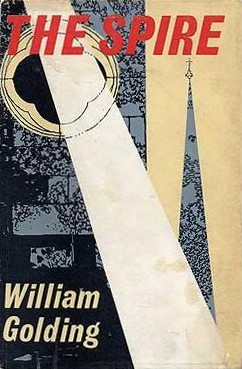
I read The Spire as science fiction. They’re on a generation ship, it’s a tight crew of people in a hermetically sealed environment. They’re trying to get the navigational system to work, with the promise of a goal they’ll eventually get to. It’s incredible, the trappings that he takes, and then reformulates them through Paradise Lost, or Thucydides.
Her words intrigued me mightily, and I realised that although I had previously (and a fair while ago now) read four of Golding’s novels, The Spire had not been one of them. It is a short novel – just under two hundred pages in length – and with the need for something meaty and thought-provoking very much in mind, I decided to sneak it up my reading pile before launching myself into the next Clarke Award epic.
How glad I am that I did. The Spire is ostensibly a historical novel, inspired by the pioneering construction of Salisbury Cathedral (Golding taught for many years at Bishop Wordsworth’s school, situated in Salisbury’s Cathedral Close) in the thirteenth century. Its protagonist Dean Jocelin is a man obsessed. He believes that he has been put on Earth by God to oversee the completion of a cathedral spire to dwarf all others and dedicated to the eternal glory of his Lord. He has engaged a master builder, Roger Mason, the only craftsman with the necessary skill – and foolhardiness – to see the project through. Mason has warned Jocelin that the cathedral’s foundations are too shallow to withstand the almighty pressure of such a behemoth construction. Jocelin is determined that even if he is right, they are bound – bound in faith – to continue:
‘I understand you, my son. It’s the little dare all over again. Shall I tell you where we’ve come? Think of the mayfly that lives for no more than one day. That raven over there may have some knowledge of yesterday and the day before. The raven knows what the sunrise is like. Perhaps he knows there’ll be another one. But the mayfly doesn’t. There’s never a mayfly who knows what it’s like to be one! And that’s where we’ve come! Oh no, Roger, I’m not going to preach you a sermon on the dreadful brevity of this life. You know, as well as I do, that it’s an unendurable length, that none the less must be endured. But we’ve come to something different, because we were chosen, both of us. We’re mayfly. We can’t tell what it’ll be like up there from foot to foot; but we must live from the morning to the evening every minute with a new thing.’
Roaming the cloisters and climbing the scaffolding, Jocelin sees and hears all, including some terrible things that would best remain hidden. Tormented by his vision – and by his unholy passion for a married woman – Jocelin clings desperately to his belief in angels as a means of protection. But the devil is at his back – literally. And when a tragedy strikes the small community, it is not just Jocelin’s physical body that lies at risk, but his soundness of mind.
The Spire is utterly grounded in its sense of place, not just the cathedral cloister itself, but the changing of the seasons, the work of farmers and masons and shopkeepers, the intimate, often prurient atmosphere of a provincial town. And it is this grounding in the quotidian that gives the novel’s increasingly fantastical trajectory its atmosphere and power. The Spire is a rural fantasia, a work of folk horror:
After that, he got up and began to move about, restlessly. The evening turned green over the rim of the cup. Then the rim went black and shadows filled it silently so that before he was well aware of it, night had fallen and the faint stars come out. He saw a fire on the rim and guessed it was a haystack burning, but as he moved round the rim of the cone, he saw more and more fires round the rim of the world. Then a terrible dread fell on him for he knew these were the fires of Midsummer Night, lighted by the devil-worshippers out on the hills. Over there, in the valley of the Hanging Stones, a vast fire shuddered brightly. All at once he cried out, not in terror but in grief. For he remembered his crew of good men, and he knew why they had knocked off work and where they had gone.
It is also a densely symbolist narrative of the struggle between good and evil. The early passages in which the cathedral’s foundations are shown to seethe with maggots, and those near the end where Father Jocelin climbs the tower to drive in the Nail, in which ‘the sweetness of his devil was laid on him like a hot hand’, are blood-chilling, imaginatively persuasive to the point you can almost believe that Golding himself has become complicit in Jocelin’s madness. Above all, the rich allusiveness of the language has the texture of modernism – modernism as it is defined by Gabriel Josipovici, unbound from its traditional historical associations with Joyce and Woolf, revealed as an active force for literary radicalism that renews itself with every generation.
It is this ideal, this idea that for me has always been the driving force of speculative fiction. I love Una’s idea of The Spire as a generation starship novel and I could run with that. But for me it resembles more closely the hallucinatory, arcane view of the speculative rendered by Wolfe and Hoban, Crowley and Kiernan. Time-travelled forward into the twentieth century, Dean Jocelin, in all his madness and his muddled philosophy, could be a thwarted magus figure straight out of one of Iris Murdoch’s quasi-fantasies. Not that time matters much here, because the story of The Spire is essentially timeless. Golding’s use of language and the power of his imagination – his vision, inchoate as Jocelin’s – makes it so.
Thank God indeed for books such as this. The inspiration to be gleaned from such a text – not just in terms of one’s own work but in thinking about the work of others – is not just timeless, but immeasurable.
I am happy to say I also found time to read Judy Golding’s The Children of Lovers, a personal memoir of her father that offers valuable insights into his creative process. Judy Golding is a writer of quality. She is so remarkably candid in her assessments, not just of her father but in her exposure of self. It’s a brave book, and clear-eyed. Written fifteen years after William Golding’s death, his spirit – and his shadow – remain undiminished. I am now greedy to read John Carey’s biography of Golding, written at around the same time as Judy Golding’s, but in the meantime, let me leave you this week with some words from The Childhood of Lovers, and Judy’s memories of her father telling a story to his grandson Nicholas:
To distract him, my father started telling him the story of the Odyssey. I saw then, with envy, his practical understanding of what a story needs, of the economy to be employed. I saw how he placed necessary details carefully but unobtrusively in the listener’s mind. I saw the way he kept description to a minimum, making it serve the narrative. Poetry, if there at all, was carefully disguised by vigour.
Night after night, my father would point away into the distance, and Nick’s eyes would follow, seeing not the white walls of the dining room, nor the sideboard with photos of old ladies in Breton costume, but the pink-tipped fingers of the dawn, the dark sea with oil holding the rough waves in a snood to calm them, the fights, the mysterious islands on the horizon, the tired, intelligent face of Odysseus at the helm of his boat.
[Afterword: there’s an extended discussion of the questions surrounding the idea of a science fiction canon on this week’s Coode Street podcast. Excellent listening!]
